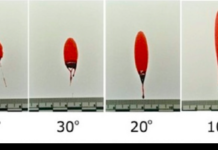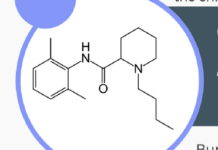How often do you grab a soda on the way out of the house? At a movie? With dinner? When you need a boost of energy? “I can’t go one day without a soda! I can’t imagine cutting it completely out of my diet,” claims Meghan Gunn, a junior at St. Joseph’s Academy in St. Louis.

But could you continue these habits if you knew that soda was affecting your body by weakening your bones? Research at Tufts University in Boston found that the high acidity levels in soda can decrease bone density, leaving the bones in your body weak and brittle.
Gina Shaw, a medical and healthcare writer for WebMD, explains that “if you think of your body as a building, your bones are the framing. Without strong bones the whole thing would collapse.” Shaw says that the recent rise in America’s soda-related health problems could be due to peoples’ tendency to replace nutritional beverages, such as milk or water, with sodas. And there may be a more specific agent in those sodas causing these issues: phosphoric acid.
In the 2006 Tufts University study, lead by Katherine Tucker, the researchers looked at data from 2,500 osteoporosis patients and found that people, specifically women, who regularly drank dark soda had low bone densities than those who did not regularly consume these beverages. Osteoporosis is especially common in women, and for a specific reason; the bones of women are generally smaller than men, and phosphoric acid affects the bones of women more directly.
“The [Tufts] researchers did not find an association between non-cola carbonated drinks and bone loss,” says Jessica Fraser, a health writer for Natural News. Colas contain phosphoric acid, which is not found in non-cola drinks. “Diets low in calcium and high in phosphorus can promote bone mineral loss, the researchers wrote,” Fraser adds.
Elson M. Haas, a medical practitioner explains in his book, The Detox Diet, that phosphorus is meant to exist in the body in a 1:1 ratio with calcium. However, large amounts of phosphorus in sodas, specifically colas, throw off the balance in the body, making the ratio 2:1, even 5:1. When these large amounts of acid enter the body, it is quickly goes into the blood stream, lowering the blood’s pH level. The body immediately works to fight this imbalance and may extract minerals from the bones to restore the phosphorus-calcium balance.
Dr. Laura Sprague, a physician at St. Joseph’s Hospital, comes in contact with osteoporosis daily in the Intensive Care Unit (ICU). She tells SciJourner that “at least half of our ICU population is elderly, and care of the osteoporosis patients is of great concern, as the majority of these patients are limited to bed rest. During long term ICU stays, we take great care in positioning and movement of our osteoporosis patients, noting their extreme fragility. Osteoporosis is definitely not a condition someone would want to have.”
The Tufts study noted that cola-based drinks, such as Pepsi or Coke, are the ones highest in phosphoric acid and are more likely to lead to osteoporosis compared to sodas lacking cola, such as Sprite or ginger ale. Phosphoric acid exists uniquely in cola-based drinks to add flavor to the soda, but its taste may not be worth the risk of osteoporosis for some soda drinkers. However, these drinks are popular. In 2010, Coca-Cola alone had around $35 billion in sales.
Patricia Pelch was diagnosed with an early stage of osteoporosis about 10 years ago, said that this new research has made her want to change her habits: “I grew up drinking soda quite frequently, couple times a week. No one really saw any problem with it. I don’t drink as much soda now but after hearing about the problems it causes I would have no problem cutting it out of my diet!”
Meanwhile, scientists continuing to study the effects of colas and looking for alternate ways to restore the phosphorus-calcium balance without depriving bones of vital minerals. Further controlled studies should be conducted to determine whether habitual cola drinkers may be adversely affecting their bone health by regularly consuming doses of phosphoric acid that do not contain calcium or another neutralizing ingredient," the Tufts researchers wrote, adding that "women concerned about osteoporosis may want to steer away from frequent consumption of cola until further studies are conducted."
|
Related stories: Can Sports Drinks Lead to Erosion of Tooth Enamel?; Don't Brush Your Teeth |
Until then, Patricia and Meghan both decided that the possible detrimental effects of colas weren’t worth the risk. After learning about this research in December, Patricia has stopped drinking soda completely, and Meghan decided to cut back. Meghan concluded saying, “I don’t want to get old and break my bones like my hip easily, and neither should you!” Anna Pelch

This work is licensed under a Creative Commons Attribution-NonCommercial-NoDerivs 3.0 Unported License














Iagree that the effects of dark soda aren’t worth the risk of weak bones. The outcome of the sod will show when your older. Why come only colas effect the bones? Why not Mountain dew or other sodas?
Thanks for the info! This really changes my view on drinking soda like Cola. What are some stats about other kinds of soda?
I find this article very informative. Do you know how long it takes for the signs of Osteoporosis to show in someone who didn’t watch their diet?
That was really good! I’m so glad I gave up soda last year completely.
This article was really good because I knew that soda was bad for you but I thought it was just because of the sugar. I have one question though. If you drink diet Sierra Mist or Sprite does it affect you in the same way?
I thought this article was really good! I am not a soda drinker, and this article makes me glad that I’m not! One question, is diet soda better for you than regular soda?
really interesting article! Do you know if anyone has confronted Coke and Pepsi producers about this problem?
How did the scientists conduct this study? We they chosen at random?
What about Dr. Pepper? Are the risks the same or worse than Pepsi and Cola?
Are there any other health concerns with soda?
:smile This is a great article, very informative. I wonder, how can one counteract the effects of drinking too much soda when they have been raised drinking it far too often and decide to change?
This is very good article and makes me want to cut back on my soda drinking. Very interesting!:smile Does it matter if you drink Diet or regular?
Does certain types of soda affect your bones more??
hey great article, good amount of resources and very informative !!! considering i’m a soda head lol
So what type of soda is the worst? dark soda r clear soda?
how does dr pepper effect your health? and im pretty sure that diet soda is just as bad for you as regular.
Great article! Really informative!
i feel that if soda is really weakining our bones the world should know more and hear more about this.
i feel that if soda is really weakining our bones the world should know more and hear more about this.
As far as I know, diet colas are even worse, as they contain aspartame, which is believed to cause cancer (particularly brain cancer). Stay away from all things "-)iet" or "Lite" and most if not all artificial sweeteners.
:smile This article wasn’t so bad after all. It had lots of persuasion in it. I give it a Thumbs Up :smile
This is a great article.
Can you show your references.